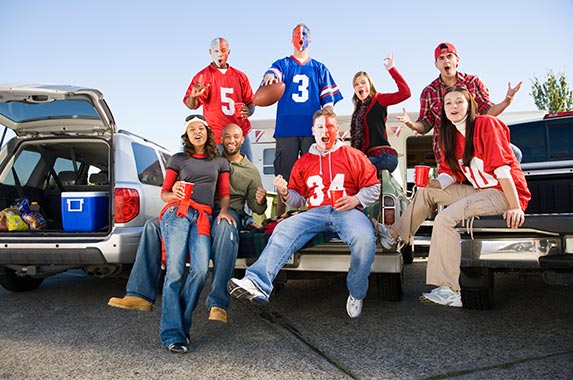- WE SAVE LIVES
- info@wesavelives.org

National Passenger Safety Week
January 11, 2022National Passenger Safety Week In the News
January 31, 2022At some point in our lives, we’ve all had the uneasy feeling of being a passenger and just not being comfortable with how the person behind the wheel is driving or conducting themselves. Maybe the driver has had too much to drink, or they’re going too fast, or they’re distracted, talking on the cell phone and not paying attention to the road.
Or perhaps we’ve seen friends or family head to the car to go somewhere, and you know deep inside that they’re really in no shape to drive safely, that they’re in danger of harming or killing themselves and others. Still, it can be hard sometimes to speak up, to know when and how to intervene. That takes courage and guts, especially in a social setting when others are watching, and you don’t know how the person you might be confronting is going to react.
But silence doesn’t save lives.
Thousands of people know this pain as the friends and family of loved ones who died as passengers in completely preventable crashes. Many of them were teenagers who hopped in the car with impaired friends driving or with multiple passengers, violating legal driving restrictions meant to help keep teens safe. Sometimes in the tragic aftermath, stories emerge of friends and parents being concerned but not taking action: I tried to stop him, but he wouldn’t listen. I didn’t know what could happen. If only I had said something when she took that call…
You can do something about it—many things, in fact. January 19 – 26 is National Passenger Safety Week, a movement launched by We Save Lives and the National Road Safety Foundation to empower passengers to speak up when their lives or those of others are in danger from reckless drivers. But every day should be a day when we as passengers and bystanders have the Courage to Intervene.


- Sign a pledge that you will not let friends drive drugged, drunk, or distracted, that you won’t ride with anyone who is impaired, that you will encourage others to do the same, and have the Courage to Intervene.
- Download the Courage to Intervene checklist of questions to ask your teen before they become a passenger. Don’t be afraid to monitor who your child rides with—it could literally save their life.
- Write an opinion editorial for your local newspapers about the importance of passenger safety and empowerment.
- Watch this video for some suggestions on how to handle sensitive situations.
- Use the hashtags #PassengersSpeakUp and #NationalPassengerSafetyWeek and download NPSW social media graphics to use on your social feeds.
- Organize passenger empowerment campaigns in schools. Grade-school-age kids and high schoolers can be the strongest advocates by speaking up if they’re in the car with someone driving unsafely or seeing their friends engaging in dangerous behavior.
- Share stories of yourself or other passengers who have intervened.


As passengers, we can do simple things to help. There are obvious tactics, like talking to and taking away the keys from an impaired driver, but we can also volunteer to be a designated texter so the driver doesn’t feel tempted. We can help navigate or gently point out if the driver is being erratic, running stop signs, or speeding. If we know they’re not the best driver, we can offer to drive for them. Try de-escalating emotional situations. And sometimes the most helpful thing you can do is to stop talking and not be distracting during changing conditions or stressful situations, like city driving or during bad weather.
And, if you feel the situation is unsafe, don’t ride with them. Get out of the car as soon as possible, and don’t let others ride either. Make it clear that you care about the driver, yourself, and others, and don’t back down, no matter what. It helps others be brave too.


Legislation, education, and enforcement can make inroads on unsafe driving, but honestly, every one of us holds the biggest power to make a difference as caring individuals. Although National Passenger Safety Week ends on January 27, let’s make this our new norm by having the Courage to Intervene and speak up—every single day of the year.
—–
BY
View original blog post: https://drivingintherealworld.com/national-passenger-safety-week-the-courage-to-speak-up-and-intervene/




